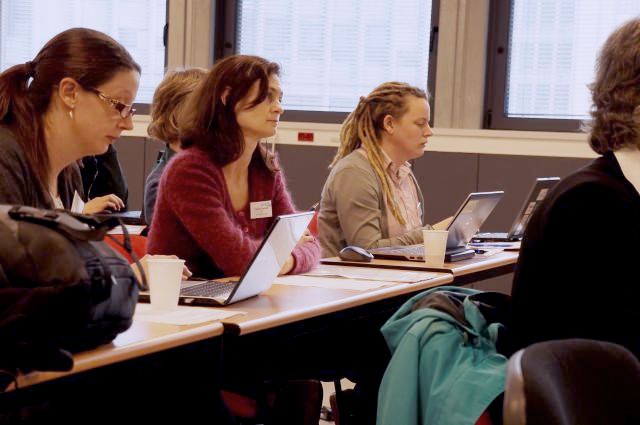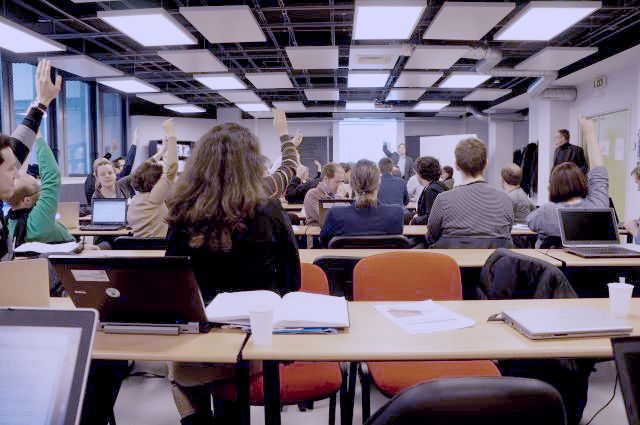The second project year of the integrated research project SCAPE has just finished. It is time to look back at the most interesting developments and significant results of this period.
 Last December, SCAPE successfully organised its first public training event: Keeping Control – Scalable Preservation Environments for Identification and Characterisation (supported by the European Capital of Culture in Guimarães, Portugal). The event was well attended, and the participants gave useful and very positive feedback to the trainers and organisers. The training material from the event is available on the OPF wiki (http://wiki.opf-labs.org/display/SP/Resources+-+SCAPE+Training+event+-+Guimaraes).
Last December, SCAPE successfully organised its first public training event: Keeping Control – Scalable Preservation Environments for Identification and Characterisation (supported by the European Capital of Culture in Guimarães, Portugal). The event was well attended, and the participants gave useful and very positive feedback to the trainers and organisers. The training material from the event is available on the OPF wiki (http://wiki.opf-labs.org/display/SP/Resources+-+SCAPE+Training+event+-+Guimaraes).
Communication and cooperation between the technical teams was increased during this project year, in order to integrate developments and results in SCAPE. The 1st Platform Release was an important milestone: the SCAPE components included in this release are listed on the OPF-wiki (http://wiki.opf-labs.org/display/SP/First+Platform+Release). The current version is a first step towards the scalable infrastructure which the project is developing. In 2013 the Platform team will test and enhance the current version of the platform. A short paper and a presentation explaining the architectural overview of the preservation platform are available on our project website (http://www.scape-project.eu/publication/an-architectural-overview-of-the-scape-preservation-platform).
A number of SCAPE components have been developed and adapted in order to address scalability, automatisation, and quality assurance of stored data. Two examples of SCAPE quality assurance tools that saw their first public releases in 2012 are Pagelyzer (comparison of web pages) and xcorrSound (comparison of sound files).
All SCAPE tools have been evaluated against the SCAPE scenarios and their current status assessed. A report on this gap analysis is available on the project website (http://www.scape-project.eu/news/d10-2-gap-analysis-on-action-services-tools-and-scape-platform-and-testbeds-requirements-draft). A first evaluation of SCAPE workflows has taken place as well. The workflows can be accessed on myExperiment (http://www.myexperiment.org/workflows?query=scape), and the evaluation report is available on the project website (http://www.scape-project.eu/news/d18-1-first-evaluation-report-draft).
Significant progress has been made towards extending the functionality of the planning component Plato, and adapting it to meet the objectives of SCAPE. A number of new features have been added to Plato in order to integrate information from myExperiment (e.g. about migration services), automated content profiling, and policy-awareness. A public instance of the newest version of Plato can be accessed at www.ifs.tuwien.ac.at/dp/plato. A first version of our machine readable Policy Model can be accessed at GitHub (https://github.com/openplanets/policies). Finally, a first version of the automated watch component SCOUT has been released as well (https://github.com/openplanets/scout).
 During the coming project year, the different SCAPE teams will work towards releasing the final version of the SCAPE preservation platform, and improving the SCAPE components in order to meet requirements for scalability. Dissemination, training and sustainability activities will continue as well. Planning for Year 3 has started at a very successful All-Staff Meeting, held in February 2013 in Paris. The agenda included a large number of sub-project and work package meetings, as well as of general cross-project sessions. During a workshop the project members identified the most successful and productive project results so far. The workshop results were very useful in gaining an overview of the current status of developments and to re-focus current work on the main project goals. The SCAPE team is looking forward to another very productive project year!
During the coming project year, the different SCAPE teams will work towards releasing the final version of the SCAPE preservation platform, and improving the SCAPE components in order to meet requirements for scalability. Dissemination, training and sustainability activities will continue as well. Planning for Year 3 has started at a very successful All-Staff Meeting, held in February 2013 in Paris. The agenda included a large number of sub-project and work package meetings, as well as of general cross-project sessions. During a workshop the project members identified the most successful and productive project results so far. The workshop results were very useful in gaining an overview of the current status of developments and to re-focus current work on the main project goals. The SCAPE team is looking forward to another very productive project year!
(pictures by Sava Cajetinac)

